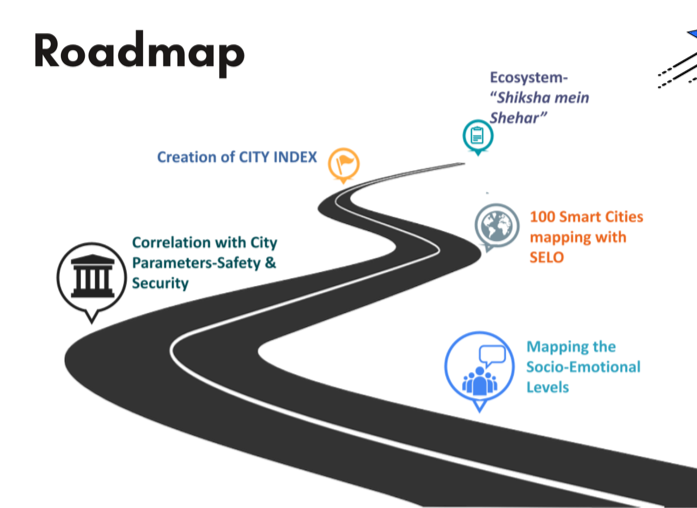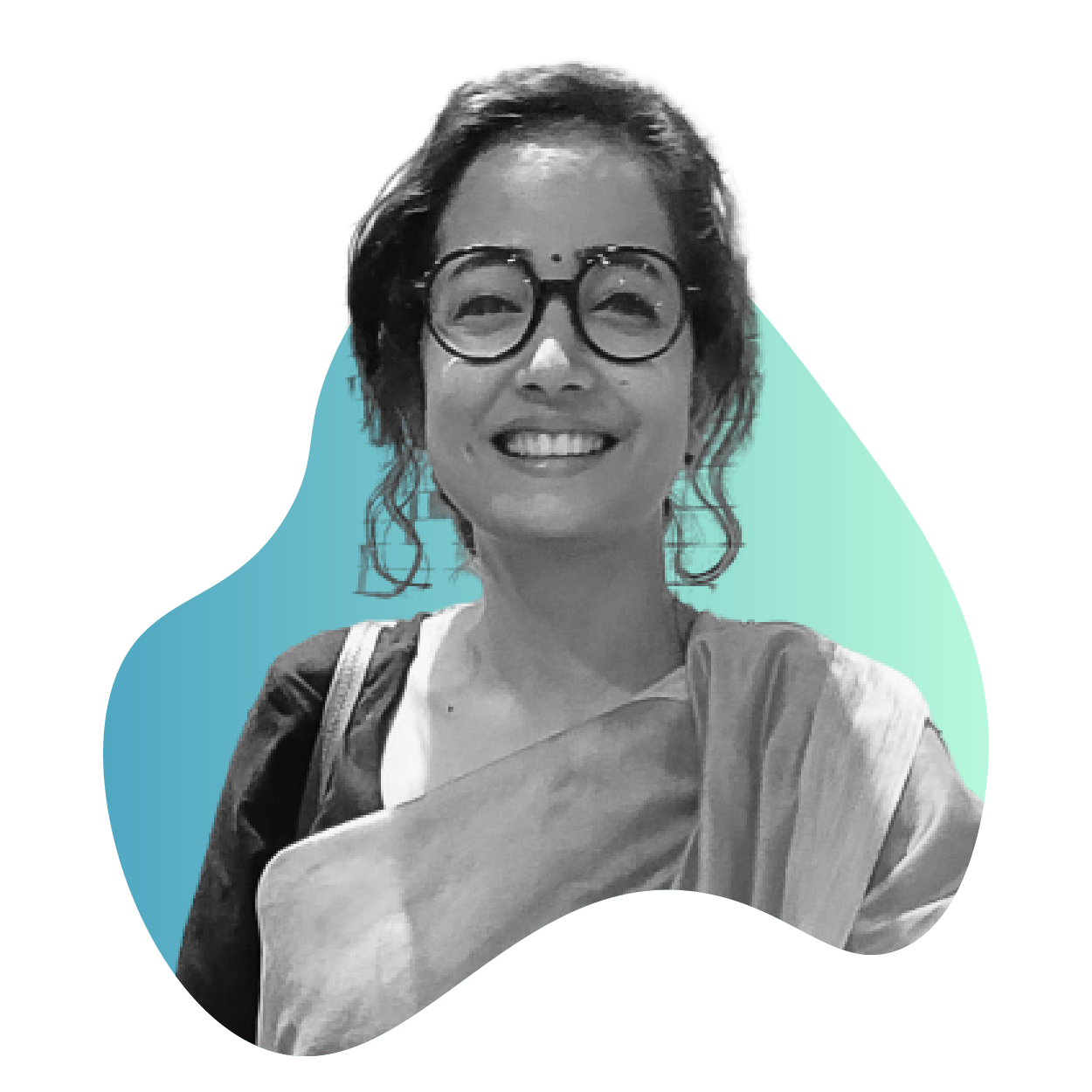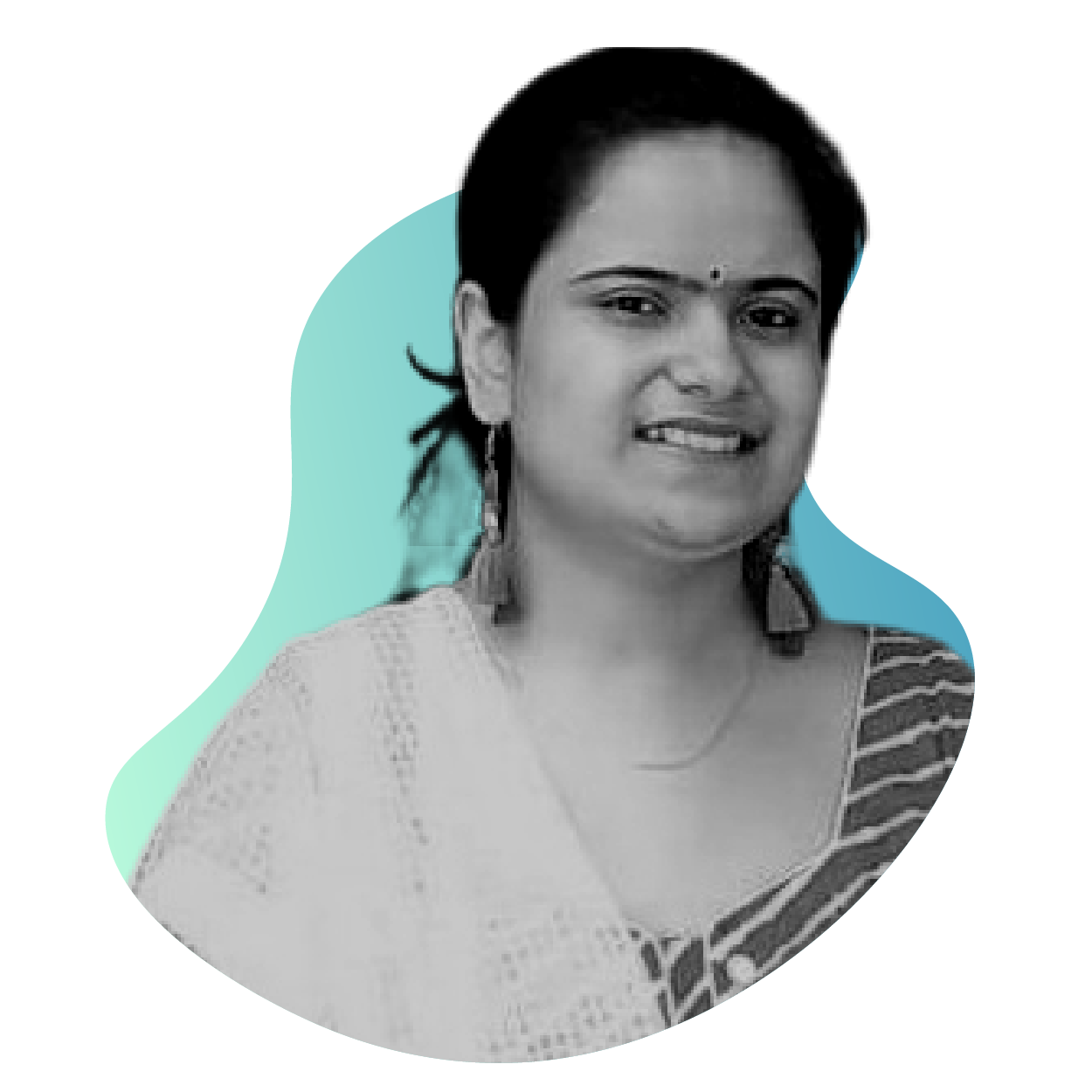To map the Socio-Emotional Learning Levels of young adults and develop a City Ranking Index based on outcomes as comparatives to the rest of the educational and urban landscape.
SAKSHAM
Context
When we focus on improving the quality of education the primary goal is to have a student who has developed rationality, knows about his/her surroundings (knowledge), and imbibes human values which are very important for holistic development. To attain the same in the current school system we have initiatives related to improving school infrastructure, teaching pedagogy, teacher training, and curriculum. But till date, the quality of education in our country is debatable and one of the many pressing urban issues.
The National Education Policy 2020 focuses on the importance of Social Emotional Learning (SEL) by stating that, “Teachers will also focus on socio-emotional learning - a critical aspect of any student’s holistic development”. In the fast-changing and diverse world, social and emotional skills are becoming integral to living a happy life. The shift to urban environments and adaptation of new-norms after covid scenario means people need to engage with new ways of thinking, communicating and working. The diverse population and the suddenly imposed dismantling of traditional social networks, place additional emphasis on people’s sense of trust, co-operation, and compassion.
In this context, social and emotional skills determine how well people adjust to their environment and their ability to make rational decisions. The development of these skills is important not only for the well-being of individuals but also for the society as a whole. The increasing ideological polarisation and social tensions call for the ability of citizens to adapt, respect each other and take personal and collective responsibility to attain a well-functioning society.
Problem Statement
Indian schools are over-run by standard-based testing and hence their focus on developing socio-emotional skills is limited to a teacher’s self-efforts for students. Teachers generally tend to get less time to focus on imparting socio-emotional skills to students. Despite the importance of SEL as stressed by the NEP, the measures taken in India are scarce. Due to which SEL is misunderstood as only related to the identification of emotions among students whereas it is more of a skill development initiative. To validate the importance of SEL, it is important to measure the same for a period of time which will help understand “where a student is” and “where they ought to be”.
This will highlight the individual needs of students and how enabling the learning environment towards developing their skills can help them. The CASEL study suggests that early identification of problems can be dealt with informed interventions, which would lead to a reduction in conduct problems, fewer outbreaks due to emotional distress, and overall enhanced academic performance (CASEL - CASEL).
Measurement of the socio-emotional learning level of students at the city level is missing as the identification or measurement done is often limited to various initiatives of NGOs such as Sattva and Child Fund India in India. This requires a city-level intervention that will help in enhancing the outcomes of students and thereby of a city in cumulation as well.
Objective
The objective of the project is to develop a toolkit that can map the socio-emotional levels of the student and in the long term, outcomes can also be mapped as comparatives to the rest of the educational and urban landscape of the city.
- SELO will help schools in identifying and mapping their performance on SEL parameters with the rest of the schools in the city, which will help them in achieving an increased demand for that school.
- SELO will aid in improving learning outcomes and in the long term lead them towards achieving better employment opportunities for students as the required skills will be obtained from the school level itself.
- SELO will help teachers identify each student's needs in less time and adopt informed pedagogy.
- SELO will act as a predictive tool for the administration, as the tool will co-relate students' input with the safety and security parameters of the urban area. The education department can specifically identify schools performing best at the district level.
- For the economy, results from SELO will create an ecosystem and market for socio-emotional learning in the city.
Project Strategy
Pilot City Identification
Pune, Maharashtra has been identified as the pilot city for the project. The following are the reasons for the same:
Historical Context: Pune had early reformers in education like Savitri Bai. She did eminent work in the field of education by running three schools in Pune by the end of 1851 for teaching girls. Savitri Bai along with Jyotirao opened 18 schools for teaching children from different castes.
Presence of credible non-governmental organizations: Pune City Connect (PCC) is working with Pune Municipal Corporation schools on quality education and specifically, on social and emotional learning, a program known as Jeevan Shikshan and their relentless efforts to improve quality of education as also Teach for India trying to bridge the gap of accessibility and quality of education too.
Digital Penetration: Shikshak Sahyogi worked on the creation of online content, which was a necessity during covid times.
Pune is known as "Oxford of the East": Pune has a rich legacy in education historically and through the establishment of the University of Pune (then known as the University of Poona) in 1949. Pune has many different kinds of educational institutes and colleges.
Project Development and Implementation
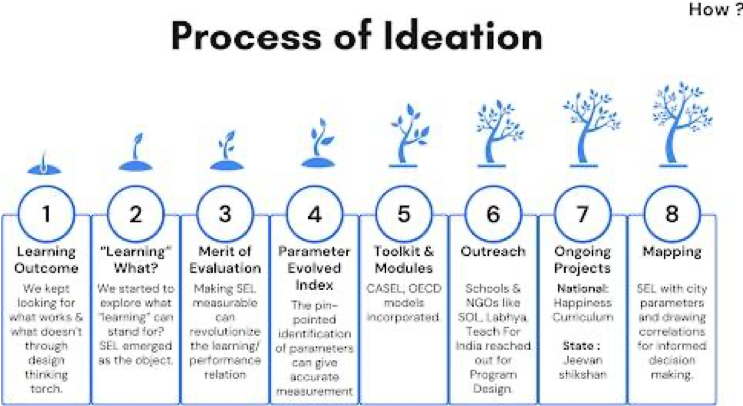
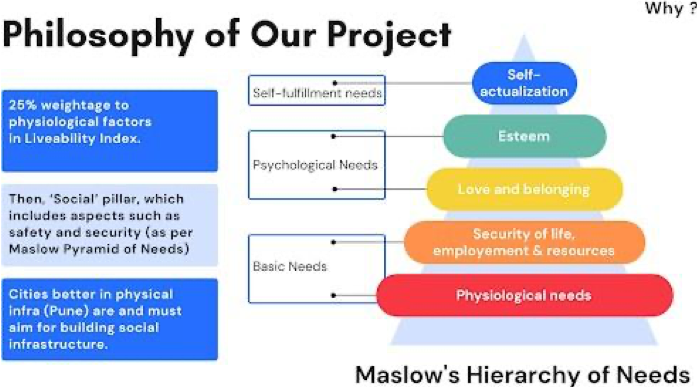
Expected Outcomes
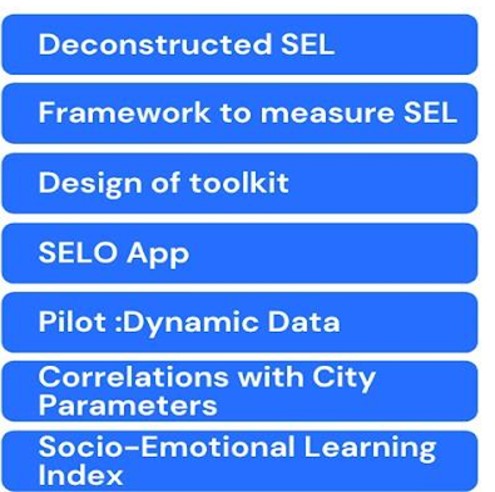
The SELO website, at this point of time is ready for data collection. We have testing modules and authenticated logins fed into the system which can make the login simple for students. Secondly, a sub-domain has been created for teachers where they can register on the circulated URL (hence targeted user and no junk data), thus making the second step authentication available to the platform.
Once the website starts fetching in dynamic data system generated algorithm will start analysis and the SELO score of students and schools can be calculated. The analysis will be henceforth represented areawise and the dashboard will keep updating itself.
Actual Result
The scalability and replicability potential of the website lies in the standards followed in its development. Since OECD and CASEL frameworks have been followed, the standards set globally can be adopted for any local or regional evaluation.
The parameters defined, are city, class and culture neutral. However, the modules can be adapted as per the cognition level of students which will require a basic level of contextualization.
Thirdly, the Management Information System (MIS) developed in the process in the form of frameworks, neurological assessments and pilot structure can also be replicated at any scale, merely with quantitative variance. The qualitative variables set in place will function as they are at any scale.
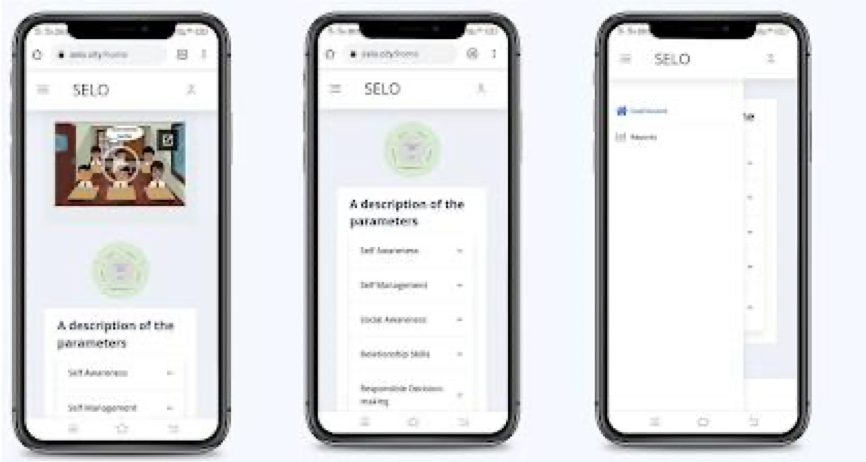
Fig 1. selo.city screenshot 1: The home page of selo city showcasing the informative video on Socio-emotional learning, description of modules, defined parameters, login for students, teachers, administration and dashboard where analysis of schools, ranking of schools, cities and finally build on of a city level index of India on Socio-Emotional Learning Outcomes displays information and inter alia.
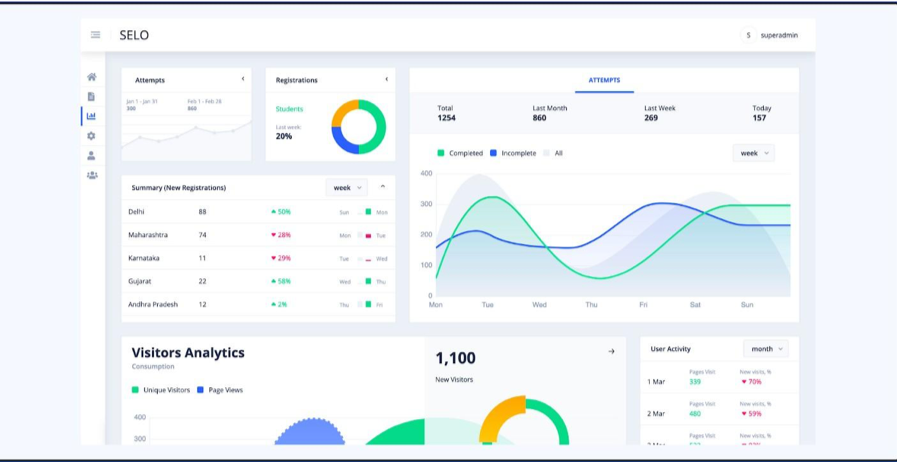
Fig 2. selo city screenshot of the bottom section of selo.city port tabs. The report tabs will further have the modules and analyzed test results, as made available publicly.
Conclusion
SELO will act as a new marker for assessing schools in cities fulfilling a data collection app on the same level. The app will assist in the dissemination of information on Socio-Emotional Learnings, creating an ecosystem, a predictive model aligning with city parameters like Safety and Security, Greenness Index, Air quality correlating with outcomes of SEL at an individual level, school level, city level and subsequently a comprehensive ‘City Index’.
